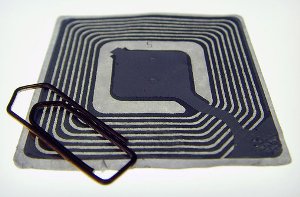Aug 25 2010
In order to turn down the voluminous wire consumption raised for the safety and control mechanisms in a huge building, the researchers are developing an advanced, uncomplicated strategy for generating wireless sensor systems utilizing the HVAC channels, that link the whole building as an antenna, and can transmit the data through radio frequency identification (RFID).
 RIFD Antennas
RIFD Antennas
The proposal is easy and cost-effective for the building developers and also reduces the time and elements required to attach the sensors manually within the buildings.
The researchers, under the guidance of Dr. Dean Stancil, NC State, pointed out that a sequence of RFID empowered temperature sensors, which are arranged in a building, could relay the climate data to the centralized HVAC passage area as a whole edifice-wide antenna.
The researchers established that the technology can operate to about 100 feet across the ductwork of the HVAC and are not sure about the actual distance of the RFID from the central area for transmission and reception of the signals or waves. The system reduces wiring, works efficiently and operates in several types of wireless sensor systems including the security systems, alarm systems, public health, carbon monoxide detection system and air conditioning structures.